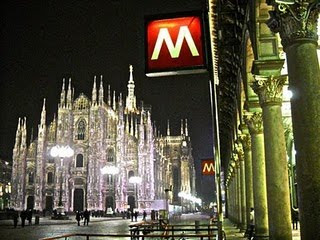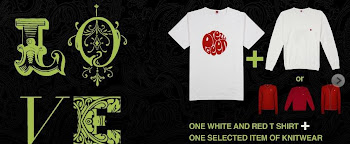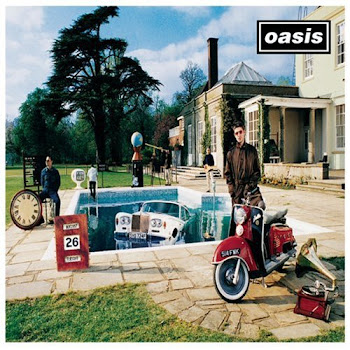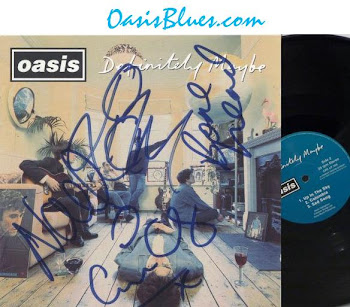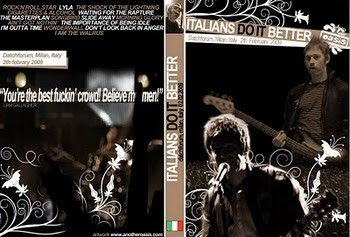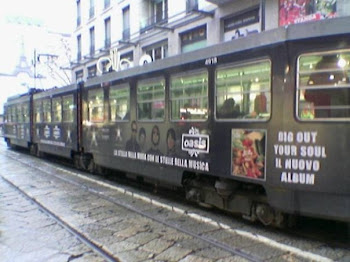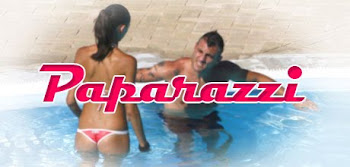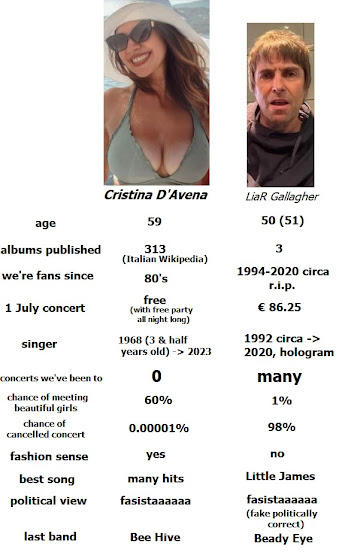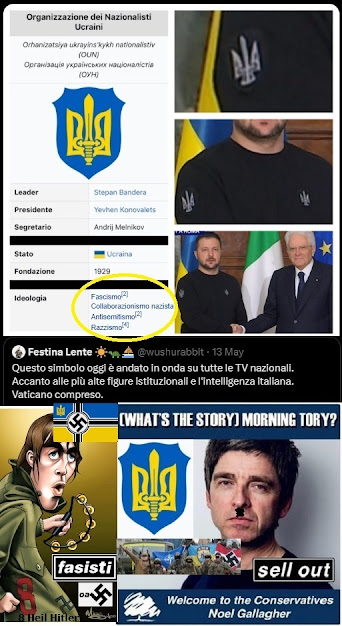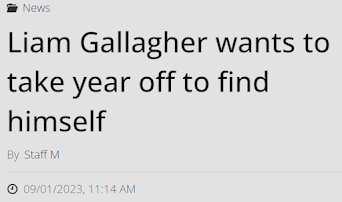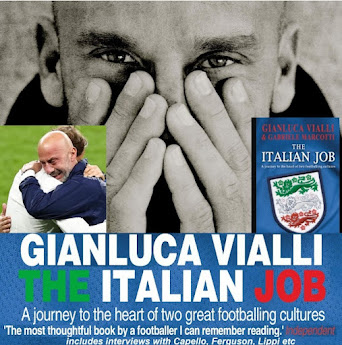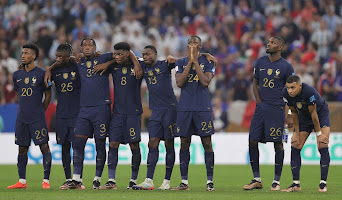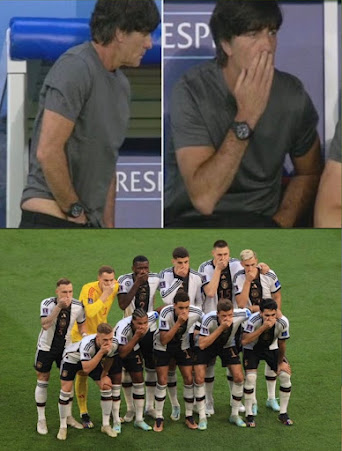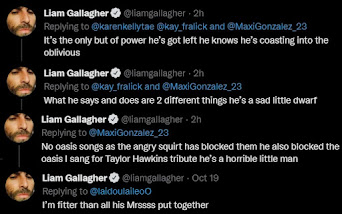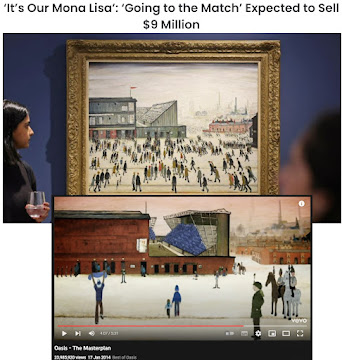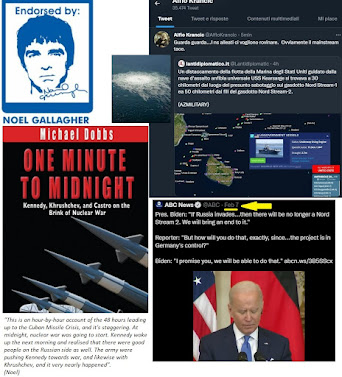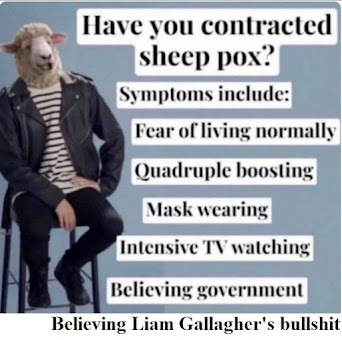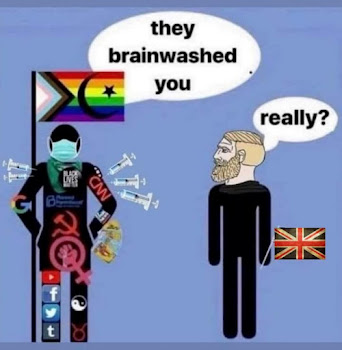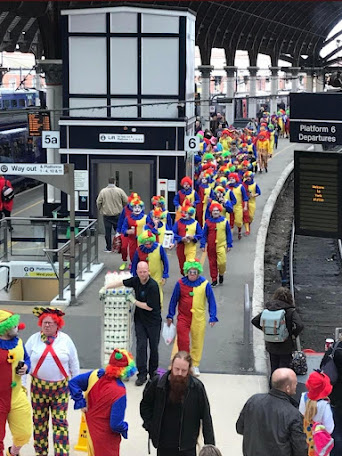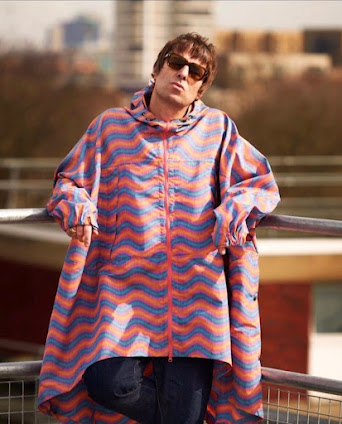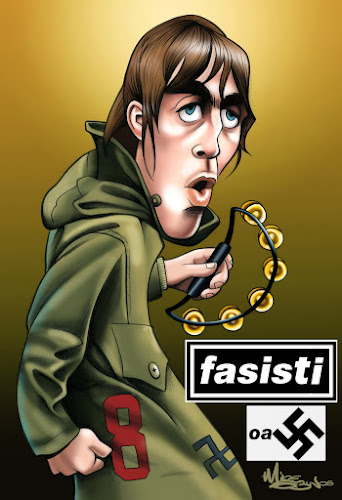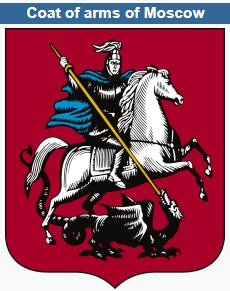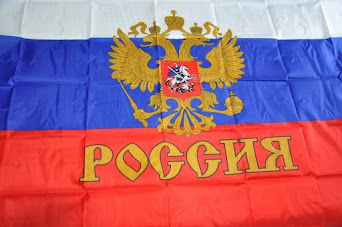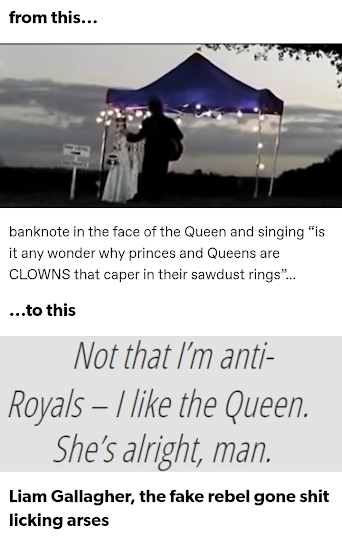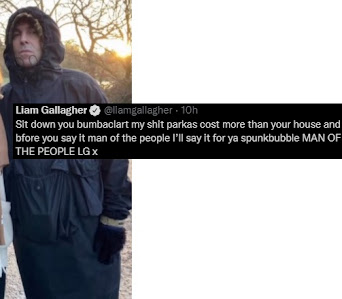Eden Project, St. Austell
Sherwood Pines, Mansfield, Nottingham
30 November 2019
Show DC Arena, Bangkok, ประเทศไทย, Prathet Thai, Thailand
27 Nov 2019
Optus Stadium, Perth, Australia
23 Nov 2019
Sydney Cricket Ground, Sydney, AU
22 Nov 2019
Sydney Cricket Ground, Sydney, AU
19 Nov 2019
The Oval, Adelaide, AU
15 Nov 2019
Marvel Stadium, Melbourne, AU
12 Nov 2019
SunCorp Stadium, Brisbane, AU
09 Nov 2019
Mt. Smart, Auckland
08 Nov 2019
Mt. Smart, Auckland, New Zealand
31 Aug 2019
Shoreline Amphitheatre, Mountain View, CA
29 Aug 2019
Five Points Amphitheatre, Irvine, CA
28 Aug 2019
North Island Credit Union Amphitheatre, San Diego, CA
25 Aug 2019
Cynthia Woods Mitchell Pavilion, Houston, TX
24 Aug 2019
Dos Equis Pavilion, Dallas, TX
23 Aug 2019
Walmart Arkansas Music Pavilion, Rogers, AR
21 Aug 2019
Ameris Bank Amphitheatre, Atlanta, GA
20 Aug 2019
PNC Music Pavilion, Charlotte, NC
19 Aug 2019
Blossom Music Center, Cleveland, OH
17 Aug 2019
Merriweather Post Pavilion, Columbia, MD
15 Aug 2019
Hollywood Casino Amphitheatre, Chicago, IL
14 Aug 2019
DTE Energy Music Theater, Detroit MI
13 Aug 2019
Budweiser Stage, Toronto
10 Aug 2019
Darien Lake Performing Arts Center, Darien Center, NY
09 Aug 2019
Northwell Health Jones Beach Theatre, Wantagh, NY
08 Aug 2019
BB&T Pavilion, Camden, NJ
11 Jul 2019
Mad Cool Festival Madrid, Spain
09 Jul 2019
Mantova Arte E Musica, Mantova, Italy
08 Jul 2019
Pistoia Blues Festival, Pistoia, Italy
06 Jul 2019
Roskilde Festival, Denmark Roskilde, Denmark
30 Jun 2019
Sunday Sessions, Powderham Castle, Exeter
29 Jun 2019
Concert At Sea (Festival) Netherlands
16 Jun 2019
Malahide Castle, Dublin
14 Jun 2019
Isle Of Wight Festival
08 Jun 2019
Bught Park, Inverness
07 Jun 2019
Heaton Park, Manchester
26 May 2019
Sunday Sessions, Earlham Park, Norwich
25 May 2019
This Is Tomorrow Festival, Exhibition Park, Newcastle
24 May 2019
Cardiff Castle Cardiff Castle, Wales
20 May 2019
Olympic Hall, Olympic Park Seoul
19 May 2019
Olympic Hall, Seoul, South Korea
17 May 2019
Festival Hall, Osaka
16 May 2019
Aichi Arts Centre, Nagoya
15 May 2019
Makuhari Messe, Tokyo
11 May 2019
Bonus Arena Hull
09 May 2019
The London Palladium
08 May 2019
Venue Cymru Llandudno
07 May 2019
Edinburgh Playhouse
04 May 2019
Warm Up Festival Murcia
01 May 2019
Concerto del Primo Maggio, Piazza San Giovanni, Roma
10 Nov 2018
KM de Vantagens Hall, Belo Horizonte, Brasil
08 Nov 2018
Summer Break Festival, Brazil Anembi, Sāo Paulo
07 Nov 2018
Summer Break Festival, Brazil The Pedreira Paulo Leminski, Curitiba
04 Nov 2018
Luna Park , Buenos Aires, Argentina
03 Nov 2018
Metropolitano, Rosario, Argentina
31 Oct 2018
Velódromo, Santiago, Chile
30 Oct 2018
Gimnasio Municipal, Concepción, Chile
02 Sep 2018
Bingley Music Live Bingley, West Yorkshire
01 Sep 2018
The Downs, Bristol
31 Aug 2018
Electric Fields Festival, Dumfries & Galloway
26 Aug 2018
Festival du Roi Arthur, Rennes, France
19 Aug 2018
Summersonic Festival, Osaka
18 Aug 2018
Summersonic Festival, Tokyo, Japan
16 Aug 2018
Olympic Hall, Olympic Park, Seoul
22 Jul 2018
Lollapalooza, Paris
21 Jul 2018
Tramlines Festival, Sheffield
19 Jul 2018
Edinburgh Castle, Scotland
18 Jul 2018
The 02 Ritz, Manchester
14 Jul 2018
Bilbao BBK Live
08 Jul 2018
Rock Werchter festival, Belgium
07 Jul 2018
Greenwich Music Time, Old Royal Naval College, Greenwich, London
06 Jul 2018
Scarborough Open Air Theatre, Scarborough
04 Jul 2018
Open'er Music Festival Gdynia-Kosakowo Airfield, Gdynia
23 Jun 2018
I-Days Festival Milano, Italia
22 Jun 2018
Roma Summer Fest, Auditorium Parco della Musica, Cavea, Rome, Italia
21 Jun 2018
Etes Arena Flegrea, Napoli, Italia
19 Jun 2018
Teatro Antico Taormina, Italy
16 Jun 2018
Pinkpop Festival Landgraaf, Netherlands
15 Jun 2018
Nocturne At Blenheim Palace, Blenheim Palace
02 Jun 2018
Adrenaline Stadium, Москва, Moscow, Росси́я, Russia
01 Jun 2018
A2 Green, Санкт-Петербург Sankt-Peterburg, Saint Petersburg, Russia
27 May 2018
Neighbourhood Weekender Festival, Victoria Park, Warrington, UK
26 May 2018
Scone Palace (Radio 2's Big Weekend) Scone Palace, Perth, UK
14 May 2018
Watford Colosseum Rickmansworth Rd, Watford
10 May 2018
3Arena, Dublin, Ireland
09 May 2018
SSE Arena, Belfast, UK
07 May 2018
First Direct Arena, Leeds, UK
06 May 2018
Motorpoint Arena, Cardiff, UK
04 May 2018
Manchester Arena, UK
03 May 2018
Metro Radio Arena, Newcastle Upon Tyne, UK
01 May 2018
Arena, Birmingham, UK
30 Apr 2018
Motorpoint Arena, Nottingham, UK
27 Apr 2018
SSE Arena, Wembley, London, UK
25 Apr 2018
AECC BHGE Arena, Aberdeen, UK
24 Apr 2018
The SSE Hydro, Glasgow, UK
22 Apr 2018
Brighton Centre, Brighton, UK
20 Apr 2018
Rockhal Esch Sur Alzette, Luxembourg
19 Apr 2018
AFAS Live Amsterdam, Netherlands
17 Apr 2018
Schlachthof, Wiesbaden, Germany
16 Apr 2018
Max-Schmeling-Halle, Berlin, Germany
14 Apr 2018
Lucerna Velký sál, Prague, Česká republika, Czech Republic
12 Apr 2018
Zenith, Die Kulturhalle, München, Germany
11 Apr 2018
Fabrique, Milan, Italy
09 Apr 2018
Mitsubishi Electric Halle, Düsseldorf, Germany
08 Apr 2018
Mehr! Theater am Großmarkt, Hamburg, Germany
06 Apr 2018
Forest National / Vorst Nationaal, Brussels, Belgium
04 Apr 2018
L'Olympia, Paris, France
03 Apr 2018
L'Olympia, Paris, France
17 Mar 2018
Vive Latino (Festival) Mexico City
13 Mar 2018
Orpheum Theatre, Los Angeles, US
12 Mar 2018
Orpheum Theatre, Los Angeles, US
10 Mar 2018
Fox Theater, San Francisco Bay Area, US
09 Mar 2018
The Chelsea, The Cosmopolitan of Las Vegas, US
06 Mar 2018
Majestic Theatre Dallas - Fort Worth, US
05 Mar 2018
Austin City Limits Live at The Moody Theater, Austin, US
03 Mar 2018
House of Blues, Houston, US
02 Mar 2018
Orpheum Theater, New Orleans, US
28 Feb 2018
The Tabernacle, Atlanta, US
27 Feb 2018
Ryman Auditorium, Nashville, US
25 Feb 2018
Murat Theatre, Old National Centre, Indianapolis, US
24 Feb 2018
Chicago Theatre, US
23 Feb 2018
Goodyear Theater, Akron, US
20 Feb 2018
Sony Centre for the Performing Arts, Toronto, Canada
18 Feb 2018
Place des Arts, Montreal, Canada
17 Feb 2018
Boston Opera House, Boston / Cambridge, US
15 Feb 2018
Radio City Music Hall, New York, US
13 Feb 2018
Merriam Theater, Kimmel Center, Philadelphia, US
12 Feb 2018
The Anthem, Washington, US
10 Feb 2018
Express Live! Columbus, US
09 Feb 2018
Scottish Rite Cathedral Theatre, Masonic Temple Detroit, US
01 Nov 2017
York Hall, London
25 Oct 2017
Estádio Cícero Pompeu de Toledo (Morumbi) São Paulo, Brazil
22 Oct 2017
Estádio Cícero Pompeu de Toledo (Morumbi) São Paulo, Brazil
21 Oct 2017
Estádio Cícero Pompeu de Toledo (Morumbi) São Paulo, Brazil
19 Oct 2017
Estádio Cícero Pompeu de Toledo (Morumbi) São Paulo, Brazil
14 Oct 2017
Estadio Nacional, Santiago, Chile
11 Oct 2017
Estadio Único de la Plata, Buenos Aires, Argentina
10 Oct 2017
Estadio Único De La Plata, Buenos Aires
07 Oct 2017
Estadio el Campin, Bogotá, Colombia
04 Oct 2017
Foro Sol, Mexico City
03 Oct 2017
Foro Sol, Mexico City
01 Aug 2017
Stade Roi Baudouin / Koning Boudewijn Stadion, Brussels, Belgium
29 Jul 2017
Amsterdam ArenA, Netherlands
25 Jul 2017
Stade De France, Paris
22 Jul 2017
Croke Park, Dublin, Ireland
18 Jul 2017
Estadi Olímpic Lluís Companys, Barcelona, Spain
16 Jul 2017
Stadio Olimpico, Rome, Italy
15 Jul 2017
Stadio Olimpico, Roma, Italia
12 Jul 2017
Olympic Stadium, Berlin, Germany
09 Jul 2017
Twickenham Stadium, London, UK
08 Jul 2017
Twickenham Stadium, London, UK
06 Sep 2016
O2 Academy Brixton, London, UK
04 Sep 2016
Festival Number 6 2016, Criccieth, UK
03 Sep 2016
Electric Picnic 2016, Galway, Ireland
02 Sep 2016
Singleton Park, Swansea, UK
28 Aug 2016
Victorious Festival 2016, Portsmouth, UK
26 Aug 2016
Bellahouston Park, Glasgow, UK
23 Aug 2016
Titanic Belfast, UK
20 Aug 2016
Lowlands Festival, Holland
19 Aug 2016
Pukkelpop Festival, Belgium
18 Aug 2016
Open Air Gampel 2016, Gampel, Switzerland
17 Aug 2016
Pukkelpop 2016, Hasselt, Belgium
16 Aug 2016
Tvornica kulture, Zagreb, Croatia
15 Aug 2016
Sziget Festival, Budapest, Magyarország, Hungary
13 Aug 2016
Pure & Crafted Festival 2016, Berlin, Deutschland
12 Aug 2016
A Summer's Tale 2016, Hamburg, Germany
11 Aug 2016
Koncerthuset, Koncertsalen, Copenhagen, Denmark
04 Aug 2016
Proms Arena Lytham Green, Lytham St. Annes, UK
04 Aug 2016
Lytham Green, Lytham, UK
03 Aug 2016
Scarborough Open Air Theatre, York, UK
29 Jul 2016
Y Not Festival 2016, Derby, UK
28 Jul 2016
Kendal Calling 2016, Penrith, UK
15 Jul 2016
Arena District, Columbus, US
15 Jul 2016
PromoWest Fest 2016, Columbus, US
14 Jul 2016
Pemberton Music Festival 2016, Vancouver, Canada
13 Jul 2016
Stage AE, Pittsburgh, US
12 Jul 2016
Meadow Brook Amphitheatre, Detroit, US
10 Jul 2016
TD Echo Beach, Toronto, Canada
09 Jul 2016
Place des Arts, Montreal, Canada
06 Jul 2016
Artpark Amphitheater, Buffalo, US
06 Jul 2016
Ottawa Bluesfest 2016, Ottawa, Canada
05 Jul 2016
Beacon Theatre, New York, US
02 Jul 2016
Ryman Auditorium, Nashville, US
01 Jul 2016
The Tabernacle, Atlanta, US
30 Apr 2016
Bournemouth International Centre (BIC) Bournemouth, UK
29 Apr 2016
Genting Arena, Birmingham, UK
27 Apr 2016
First Direct Arena, Leeds, UK
25 Apr 2016
Echo Arena, Liverpool, UK
25 Apr 2016
O2 Academy, Liverpool, UK
24 Apr 2016
Aberdeen Exhibition & Conference Centre (AECC) Aberdeen, UK
21 Apr 2016
The SSE Hydro, Glasgow, UK
18 Apr 2016
AFAS Live, Amsterdam, Nederland
17 Apr 2016
Forest National / Vorst Nationaal, Brussels, Belgium
15 Apr 2016
Palladium, Köln, Germany
12 Apr 2016
Planet.tt Bank Austria Halle Gasometer B, Vienna, Österreich
12 Apr 2016
Zenith, Die Kulturhalle, Munich, Germany
11 Apr 2016
X-TRA, Zürich, Switzerland
09 Apr 2016
Sant Jordi Club, Barcelona, España
08 Apr 2016
La Riviera, Madrid, Spain
01 Apr 2016
Crown Theatre, Perth, Australia
30 Mar 2016
Adelaide Entertainment Centre, Adelaide, Australia
29 Mar 2016
Margaret Court Arena, Melbourne, Australia
27 Mar 2016
Tyagarah Tea Tree Farm, Gold Coast, Australia
26 Mar 2016
Hordern Pavilion, Sydney, Australia
26 Mar 2016
Tyagarah Tea Tree Farm Gold Coast, Australia
24 Mar 2016
Byron Bay Bluesfest 2016 Gold Coast, Australia
19 Mar 2016
Lollapalooza 2016, Buenos Aires, Argentina
17 Mar 2016
Lollapalooza 2016, Santiago, Chile
16 Mar 2016
Luna Park, Buenos Aires, Argentina
15 Mar 2016
Teatro De Verano "Ramón Collazo", Montevideo, Uruguay
13 Mar 2016
Lollapalooza 2016, São Paulo, Brazil
09 Mar 2016
Teatro Metropólitan, Mexico City, Méjico
08 Mar 2016
Teatro Diana, Guadalajara, Mexico
10 Dec 2015
Royal Albert Hall, London, UK
08 Dec 2015
The SSE Hydro, Glasgow, UK
02 Dec 2015
O2 Apollo, Manchester, UK
24 Jul 2015
Fuji Rock 2015, Niigata, Japan
24 Jul 2015
Ansan Valley Rock Festival 2015, Ansan, Republic of Korea
16 Jul 2015
Latitude Festival 2015, Southwold, UK
16 Jul 2015
Festival Internacional de Benicàssim - FIB 2015, Valencia, Spain
16 Jul 2015
Super Bock Super Rock 2015, Lisbon, Portugal
14 Jul 2015
Live at the Marquee, Cork, Ireland
11 Jul 2015
Summer in the City 2015, Manchester, UK
11 Jul 2015
Castlefield Bowl, Manchester, UK
10 Jul 2015
T In The Park 2015, Auchterarder, UK
09 Jul 2015
Rock in Roma - Ippodromo delle Capannelle, Rome, Italy
08 Jul 2015
Anfiteatro Camerini, Vicenza, Italy
06 Jul 2015
Summer Arena Assago - Area Esterna Mediolanum Forum, Milan, Italy
04 Jul 2015
Calling Festival 2015, London, UK
02 Jul 2015
Gröna Lund, Stockholm, Sverige
27 Jun 2015
Roskilde Festival 2015, Roskilde, Danmark
25 Jun 2015
Rock Werchter 2015, Werchter, België
23 Jun 2015
OUÏ FM Festival 2015, Paris, France
19 Jun 2015
Best Kept Secret Festival 2015, Hilvarenbeek, Netherlands
06 Jun 2015
Boston Opera House, Boston / Cambridge, US
06 Jun 2015
The Governors Ball Music Festival 2015, New York, US
04 Jun 2015
Lincoln Theatre, Washington, US
03 Jun 2015
Merriam Theater, Kimmel Center, Philadelphia, US
02 Jun 2015
House of Blues, Cleveland, US
31 May 2015
Royal Oak Music Theatre, Detroit, US
30 May 2015
Pabst Theatre, Milwaukee, US
29 May 2015
Riviera Theatre, Chicago, US
26 May 2015
Teatro Metropólitan Mexico City
23 May 2015
The Joint, Hard Rock Hotel & Casino Las Vegas, US
22 May 2015
The Joint, Hard Rock Hotel & Casino Las Vegas, US
20 May 2015
Orpheum Theatre, Los Angeles, US
18 May 2015
The Warfield, SF Bay Area, US
16 May 2015
Humphrey's Concerts by the Bay, San Diego, US
14 May 2015
Majestic Theatre Dallas - Fort Worth, US
13 May 2015
House of Blues, Houston, US
10 May 2015
Civic Theatre, New Orleans, US
08 May 2015
Shaky Knees Festival 2015, Atlanta, US
07 May 2015
Webster Hall, New York, US
04 May 2015
Sony Centre for the Performing Arts, Toronto, Canada
03 May 2015
Sony Centre for the Performing Arts, Toronto, Canada
16 Apr 2015
Nippon Budokan|日本武道館 Tokyo, Japan
15 Apr 2015
Nippon Budokan|日本武道館 Tokyo, Japan
13 Apr 2015
Zepp Nagoya Nagoya, Japan
11 Apr 2015
Zepp Fukuoka Fukuoka, Japan
09 Apr 2015
Hiroshima Bunka Gakuen (HBG) Hall - 広島文化学園HBGホール Hiroshima, Japan
07 Apr 2015
Osaka Festival Hall (フェスティバルホール) Osaka, Japan
06 Apr 2015
Osaka Festival Hall (フェスティバルホール) Osaka, Japan
04 Apr 2015
Walker Hill Theater, Seoul, Republic of Korea
03 Apr 2015
Walker Hill Theater, Seoul, Republic of Korea
28 Mar 2015
Royal Albert Hall, London, UK
22 Mar 2015
Ancienne Belgique (AB) Brussels, Belgium
20 Mar 2015
TivoliVredenburg, Utrecht, Netherlands
19 Mar 2015
Mitsubishi Electric Halle, Düsseldorf, Germany
17 Mar 2015
VEGA Musikkens Hus - Store Vega (Main Hall) Copenhagen, Denmark
16 Mar 2015
Max-Schmeling-Halle, Berlin, Germany
14 March 2015Fabrique, Milano, Italia12 Mar 2015
Zénith de Paris, France
10 Mar 2015
The O2 Arena, London, UK
09 Mar 2015
Manchester Arena, UK
07 Mar 2015
The SSE Hydro, Glasgow, UK
06 Mar 2015
Motorpoint Arena, Nottingham, UK
04 Mar 2015
3Arena, Dublin, Ireland
03 Mar 2015
SSE Arena, Belfast, UK
09 Nov 2012
Revention Music Center, Houston, US
08 Nov 2012
Austin Music Hall, Austin, US
07 Nov 2012
Verizon Theatre at Grand Prairie Dallas - Fort Worth, US
05 Nov 2012
Ryman Auditorium, Nashville, US
04 Nov 2012
Louisville Palace, Louisville, US
03 Nov 2012
The Venue, Horseshoe Casino, Chicago, US
01 Nov 2012
Arvest Bank Theatre at The Midland, Kansas City, US
31 Oct 2012
Roy Wilkins Auditorium, St. Paul Rivercentre Twin Cities, US
30 Oct 2012
Centennial Concert Hall, Winnipeg, Canada
28 Oct 2012
Stampede Corral, Calgary, Canada
27 Oct 2012
Edmonton Expo Centre At Northlands, Edmonton, Canada
25 Oct 2012Rogers Arena, Vancouver, Canada24 Oct 2012
WaMu Theater, Seattle, US
23 Oct 2012
Arlene Schnitzer Concert Hall, Portland, US
12 Oct 2012
Le Bikini, Toulouse, France
11 Oct 2012
Transbordeur, Lyon, France
08 Oct 2012
Capitol, Offenbach, Germany
06 Oct 2012
Paladozza, Bologna, Italy
05 Oct 2012
Teatro Obihall, Firenze, Italy
03 Oct 2012
Mitsubishi Electric Halle, Düsseldorf, Germany
27 Sep 2012
Twinkle Rock Festival 2012, Taipei, Taiwan
25 Sep 2012
Jiulongwan Zhanlan Zhongxin, Hong Kong, China
21 Sep 2012
Singapore Formula 1 Grand Prix 2012
20 Sep 2012
Bitec Bangna, Bangkok, Thailand
12 Sep 2012
iTunes Festival 2012, London, UK
10 Sep 2012
Motorpoint Arena, Nottingham, UK
09 Sep 2012
Motorpoint Arena, Cardiff, UK
07 Sep 2012
SSE Arena, Wembley, London, UK
06 Sep 2012
O2 Academy, Liverpool, UK
06 Sep 2012
Echo Arena, Liverpool, UK
04 Sep 2012
Bournemouth International Centre (BIC) Bournemouth, UK
25 Aug 2012
Rock en Seine 2012, Paris, France
23 Aug 2012 Belsonic festival, Custom House Square, Belfast, Northern Ireland19 Aug 2012
V Festival, Stafford, UK
18 Aug 2012
V Festival 2012, Chelmsford, UK
17 Aug 2012
V Festival 2012, Wolverhampton, UK
16 Aug 2012
Austria Green Park, St Polten
27 Jul 2012
Fuji Rock 2012, Niigata, Japan
17 Jul 2012
Edinburgh Castle, Scotland, UK
15 Jul 2012
Festival Internacional de Benicàssim - FIB 2012 Valencia, Spain
13 Jul 2012
Musilac 2012, Chambéry, France
07 Jul 2012
Les Déferlantes d'Argeles 2012, Perpignan, France
06 Jul 2012
T In The Park 2012, Kinross, UK
05 Jul 2012
Heineken Jammin Festival 2012, Milano, Italia
04 Jul 2012
Auditorium Stravinski, Montreux, Switzerland
29 Jun 2012
Montreux Jazz Festival 2012, Switzerland
29 Jun 2012
Kollen 2012, Oslo, Norge, Norway
28 Jun 2012
Rock Werchter 2012, Belgium
23 Jun 2012
Isle of Wight Festival 2012, UK
21 Jun 2012
Isle of Wight Festival 2012, UK
20 Jun 2012
Plac Zebrań Ludowych, Gdańsk, Polska, Poland
14 Jun 2012
Hultsfredsfestivalen 2012, Hultsfred, Sweden
10 Jun 2012
Maxidrom Festival 2012, Moscow, Russian Federation
29 May 2012
Yes24 Live Hall, Seoul, Republic of Korea
28 May 2012
Yes24 Live Hall, Seoul, Republic of Korea
26 May 2012
Municipal Central Gymnasium (大阪市立中央体育館) Osaka, Japan
24 May 2012
Great Hall, Aichi Prefectural Arts Theater - 愛知県芸術劇場 大ホール 愛知 Nagoya, Japan
23 May 2012
Nippon Budokan|日本武道館 Tokyo, Nippon
08 May 2012
Jockey Club del Paraguay, Asunción, Paraguay
06 May 2012
Club Gimnasia y Esgrima (GEBA) Buenos Aires, Argentina
03 May 2012
Vivo Rio, Rio de Janeiro, Brazil
02 May 2012
Espaço das Américas, São Paulo, Brazil
26 Apr 2012
Municipal Central Gymnasium (大阪市立中央体育館) Osaka, Japan
24 Apr 2012
Great Hall, Aichi Prefectural Arts Theater - 愛知県芸術劇場 大ホール 愛知 Nagoya, Japan
23 Apr 2012
Nippon Budokan|日本武道館 Tokyo, Japan
20 Apr 2012
Pearl Concert Theatre, Palms Casino Resort, Las Vegas, US
20 Apr 2012
Coachella 2012, San Diego, US
18 Apr 2012
Orpheum Theatre, Phoenix, US
17 Apr 2012
Balboa Theatre, San Diego, US
13 Apr 2012
Coachella 2012, San Diego, US
11 Apr 2012
Teatro Metropólitan, Mexico City
10 Apr 2012
Teatro Metropólitan Mexico City
10 Apr 2012
Auditorio Banamex - Monterrey, Mexico (cancelled)
06 Apr 2012
The Tabernacle Atlanta, US
04 Apr 2012
Egyptian Room, Old National Centre, Indianapolis, US
03 Apr 2012
Pabst Theatre, Milwaukee, US
01 Apr 2012
Riviera Theatre, Chicago, US
31 Mar 2012
Royal Oak Music Theatre, Detroit, US
29 Mar 2012
Express Live! Columbus, US
28 Mar 2012
Warner Theatre, Washington, US
15 Mar 2012
Komplex 457, Zürich, Switzerland
13 Mar 2012
Atlantico, Roma, Italia
11 Mar 2012
Tonhalle - Kultfabrik, Munich, Germany
09 Mar 2012
Max-Schmeling-Halle, Berlin, Germany
08 Mar 2012
Sporthalle Hamburg, Hamburg, Germany
06 Mar 2012
Le Grand Rex, Paris, France
04 Mar 2012
Razzmatazz, Barcelona, Spain
01 Mar 2012
The Ballroom, Birmingham, UK
01 Mar 2012
The Other Room, Birmingham, UK
01 Mar 2012
Barclaycard Arena, Birmingham, UK
29 Feb 2012
O2 Academy Brixton, London, UK
26 Feb 2012
The O2 Arena, London, UK
24 Feb 2012
Scottish Exhibition & Conference Centre (SECC) Glasgow, UK
23 Feb 2012
Metro Radio Arena, Newcastle Upon Tyne, UK
21 Feb 2012
The BRIT Awards 2012, London, UK
19 Feb 2012
Sheffield Arena, UK
17 Feb 2012
The Grand Social, Dublin, Ireland
16 Feb 2012
SSE Arena, Belfast, UK
14 Feb 2012
Aberdeen Exhibition & Conference Centre (AECC) Aberdeen, UK
14 Feb 2012
Manchester Arena, UK
13 Feb 2012MEN Arena - Manchester31 Jan 2012
Big Day Out 2012, Melbourne, Australia
29 Jan 2012
Big Day Out 2012, Melbourne, Australia
26 Jan 2012
Big Day Out 2012, Sydney, Australia
23 Jan 2012
Big Day Out 2012, Sydney, Australia
22 Jan 2012 Big Day Out 2012, Gold Coast Parklands, Gold Coast, Australia17 Jan 2012
Tokyo Dome City Hall (東京ドームシティホール) Tokyo, Japan
16 Jan 2012
Tokyo Dome City Hall (東京ドームシティホール) Tokyo, Japan
10 Dec 2011
Valley View Casino Center, San Diego, US
10 Dec 2011
KROQ Almost Acoustic Christmas 2011, Los Angeles, US
06 Dec 2011
Casino De Paris, France
04 Dec 2011
Palladium, Cologne, Germany
03 Dec 2011
Koncerthuset, Koncertsalen, Copenhagen, Denmark
01 Dec 2011
Ancienne Belgique (AB) Brussels, Belgium
30 Nov 2011 Live @ Later with Jools Holland, bootleg)19 Nov 2011
Orpheum Theatre, SF Bay Area, US
18 Nov 2011
Royce Hall, UCLA, Los Angeles, US
17 Nov 2011
Royce Hall, UCLA, Los Angeles, US
15 Nov 2011
Beacon Theatre, New York, US
14 Nov 2011
Beacon Theatre, New York, US
12 Nov 2011
Wang Theatre, Boch Center, Boston / Cambridge, US
11 Nov 2011
Academy of Music Philadelphia, USA
08 Nov 2011
Massey Hall, Toronto, Canada
07 Nov 2011
Massey Hall, Toronto, Canada
 The man who discovered Oasis says they will reform. Alan McGee signed the band in 1993 after seeing them at King Tut's in Glasgow.
The man who discovered Oasis says they will reform. Alan McGee signed the band in 1993 after seeing them at King Tut's in Glasgow.







.jpg)







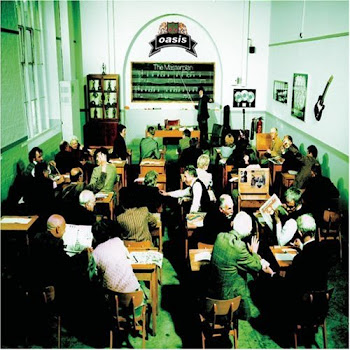
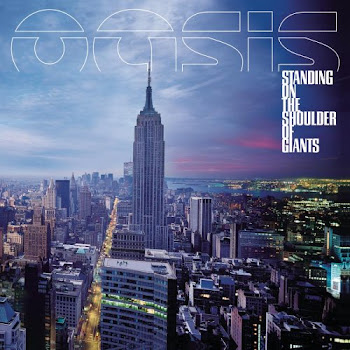

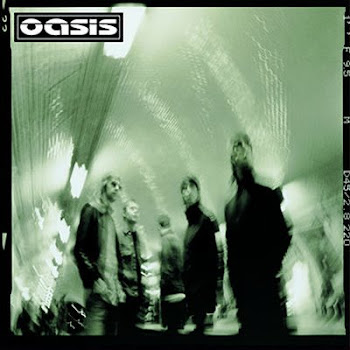


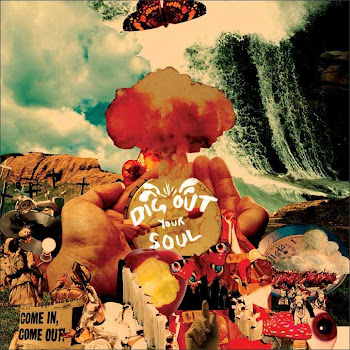
+Crest.jpg)


